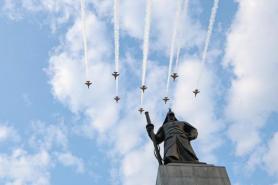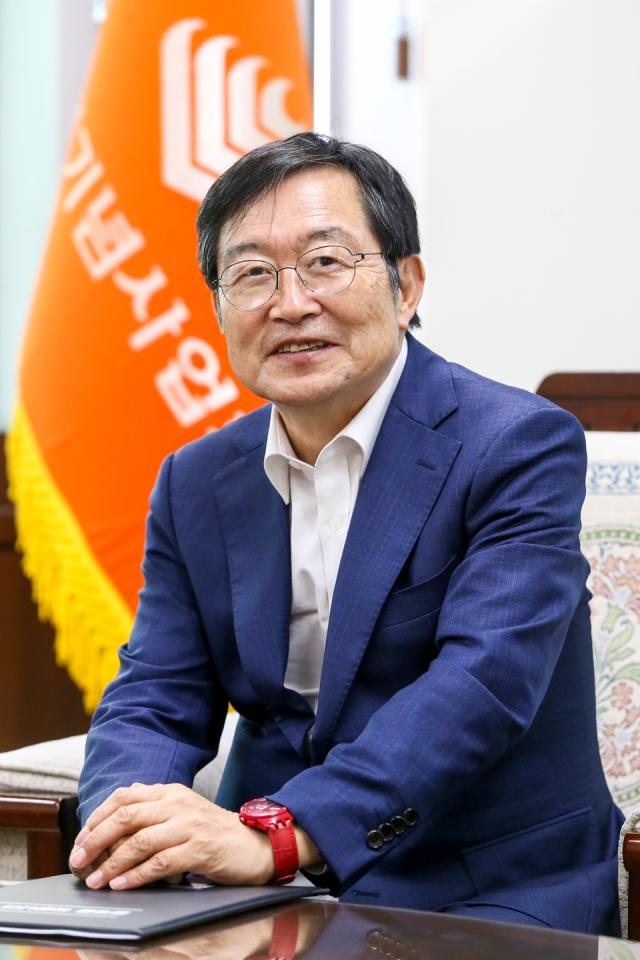
"We will ensure their dedication and sacrifices remain honored and remembered throughout history, preserving the legacy of the fallen to inspire future generations with the values of peace and freedom as well as the importance of national defense," said Baek Seung-joo, president of the War Memorial of Korea and former vice minister of the Ministry of National Defense, in celebration of Armed Forces Day on Oct. 1.
This year is especially meaningful for Baek, as the memorial celebrates its 30th anniversary and also marks the first time in 34 years that Armed Forces Day has been reinstated as a national holiday, honoring the military's dedication to defending and serving the nation.
Stressing the importance of remembering the Korean War, Baek reflected on his most memorable moments so far and shared his thoughts on the role and responsibilities of the memorial, the challenges ahead, and his future goals.
The war that occurred in 1950 remains one of the most tragic events in Korean history, displacing millions of people, claiming the lives of over one million civilians, and dividing the country into the South and the North to this day.
Baek explained that the memorial has played a crucial role in raising awareness about the war not only among Koreans but also for foreign visitors. "The memorial has 11 permanent exhibition halls, providing insights into the war within the broader context of Korean history," said Baek.
The memorial draws thousands of visitors all year round, with approximately 20 percent coming from abroad. Many of these visitors are descendants of foreign soldiers who came to a faraway land that they never even heard of and fought to uphold the democratic values of freedom.
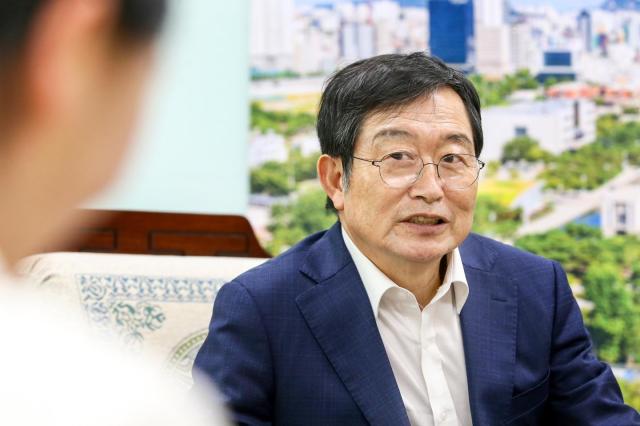
There is an impressive granite slab honoring Korean War veterans in Washington, which reads, "Our nation honors her sons and daughters who answered the call to defend a country they never knew and a people they never met."
Similarly, the memorial in Seoul has also a monument called the "Roll of Honors," which honors to some 16 countries that sent soldiers as well as six other countries that provided medical assistance. It is inscribed with the name of soldiers and war veterans including around 40,000 UN forces who fought during the war. These poignant inscriptions serve as a solemn reminder of the sacrifices made by these brave individuals.
"This is more than just a list of names," Baek explained. "It's a symbol of our appreciation and remembrance for their sacrifices. It is also an expression of our commitment to ensuring that their sacrifice for peace and freedom is not forgotten by future generations to come."
Baek said, "Whenever leaders and other dignitaries from these countries visit, I always guide them to the Roll of Honors. Recently, Prime Minister of New Zealand Christopher Luxon visited here and expressed his deep appreciation for how we honor the war veterans. Moments like that are incredibly rewarding."
Baek also proudly said, "I want them to know how South Korea rose from the devastating ashes of the war to transform into what they see today, achieving phenomenal economic growth."
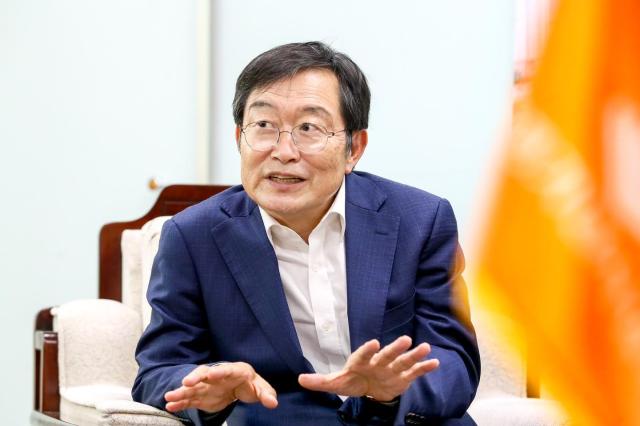
"While we've been primarily working with Korean scholars and historians to gather data and information about the war, we're now planning to invite more international experts to gain valuable insights from diverse perspectives," Baek said.
He explained that these efforts to provide resources about the war are crucial because they will help future generations learn from the past.
Baek boasted about the memorial's library, which has been hosting exhibitions and other events in collaboration with embassies, museums, and similar institutions both at home and abroad.
"The library has an archive with an extensive collection of books, documents, maps, photographs and clipping files and it is one of the busiest in the country with an average of 300 visitors on weekdays and 600 on weekends," Baek said. The memorial also runs a diverse range of events including lectures, educational programs and other activities.
"For instance, in July this year, there was a special exhibition featuring a display of old photos of war veterans from Luxembourg and other artifacts, which resonated with visitors," he said.
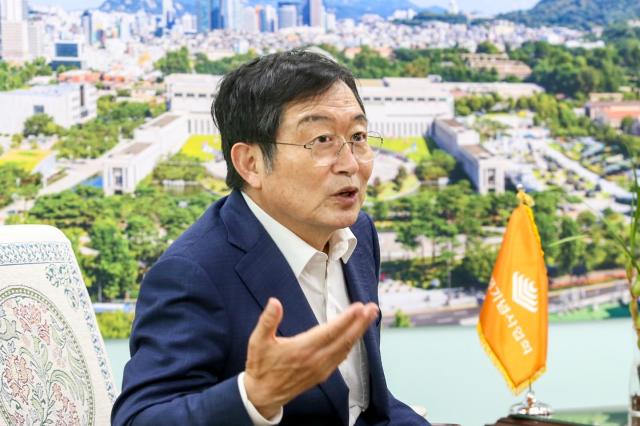
Baek cited a waning enthusiasm for reunification among South Koreans as a major obstacle. "This sentiment isn't just confined to the younger generations who have no direct memory of the war. An increasing number of older Koreans are also questioning the necessity of reunification," he pointed out.
"With over 70 years having passed since the armistice and only a few separated families still alive, the sense of urgency has faded. Furthermore, a stark economic disparity between North and South Korea, along with the North's constant nuclear threats and provocations, has led many South Koreans to harbor doubts about reunification," he added.
Despite this shift in sentiment, Baek remains committed to the memorial's mission of strengthening national defense and laying the groundwork for peaceful reunification between the two Koreas.
"We have been working to create opportunities for more Koreans, particularly youngsters, to learn about the war and its lessons through lectures, seminars, and other educational programs," he said. "Through these efforts, we hope to inspire more discussions on reunification and its significance."
Before wrapping up the interview, Baek also shared his thoughts on the upcoming U.S. presidential election in November and its potential ramifications for South Korea.
"Regardless of the winner - be it Donald Trump or Kamala Harris - Seoul should prioritize national security in its relations with the U.S. while strengthening a broader alliance with more countries to foster internal unity in countering North Korea's North Korea's nuclearization," he stressed.
Copyright ⓒ Aju Press All rights reserved.


